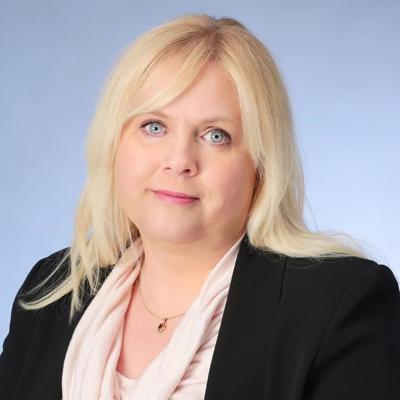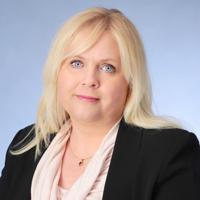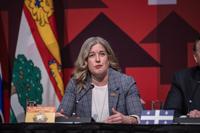A massive financial shift is set to take place in the coming years as baby boomers pass their assets down to the millennial and gen Z cohorts. But many parents aren't preparing their adult children to handle that wealth.
CPA Canada says it's expected to be the largest generational transfer of wealth in ║├╔źtv history, with younger ║├╔źtvs expected to receive a combined $1 trillion in the next few years alone.
But talking about money is still taboo for many families, said Thuy Lam, a certified financial planner with Objective Financial Partners, a fee-only firm in Toronto.
ÔÇťThe reality is a majority of parents do not sit down with their kids. Not even a third of parents will sit down with their kids,ÔÇŁ Lam said.
Even after being in the finance industry for more than 20 years, she said she's still shocked when a family has had an open discussion with their kids because it's so rare. Having this discussion is always something she encourages, though.
The unfortunate irony of this silence is a major fear among parents is that their children lack financial literacy ÔÇö they worry their kids donÔÇÖt know how to manage money, Lam said. But itÔÇÖs hard to learn a forbidden topic, especially if parents have specific wishes for their wealth. Lack of communication, Lam noted, can create family chaos around inheritances.
ThereÔÇÖs extra sensitivity about inheritance because it involves death, said Tracey McLennan, director of the client consultation group for Edward Jones Canada.
ÔÇťWe donÔÇÖt like to talk about mortality either,ÔÇŁ she pointed out. ÔÇťSo now weÔÇÖre pairing up money and mortality."
However, parents are talking to their advisers. And it turns out they have a lot to say.
The top concern for this asset-rich generation is the financial literacy of their children, Lam said. The second biggest concern is their childrenÔÇÖs spouses.
ÔÇťAlthough the marriage amongst their kids and spouses are currently going well, you know, thatÔÇÖs sometimes a concern,ÔÇŁ Lam said. ÔÇťThey want to be able to protect any inheritances from potential breakdown.ÔÇŁ
McLennan sees that too.
ÔÇťÔÇśWe love our daughters- and sons-in-law, but what if the relationship doesnÔÇÖt last?ÔÇÖÔÇŁ she said parents often ask.
ÔÇťI think that we also hear parents are concerned that they donÔÇÖt want to give the wealth too early, or in a way that will affect their childrenÔÇÖs life or relationships.ÔÇŁ
The older generation has worked hard for their money, and worked hard to save it, McLennan said. Her clientele tells her theyÔÇÖre concerned about their legacy being wasted ÔÇö they want the inheritance to have meaning.
ÔÇťThey want to make sure that they are going to impact the next generation in an important way, and it not be wasted,ÔÇŁ McLennan said. ÔÇťOr if thereÔÇÖs enough funds, that itÔÇÖs actually available for even more than one generation.ÔÇŁ
Sometimes parentsÔÇÖ vision for the wealth can be very specific, she adds: paying for the grandchildren's education or used as extra money for vacations their kids couldn't otherwise afford.
They might also want security for heirs that are self-employed or work for the family business, or perhaps have a disability or addiction.
Adult children can sometimes get the conversation started if their parents have not. Sometimes Lam finds herself coaching the younger generation on how to open a dialogue: start by asking about the executor role.
ÔÇťItÔÇÖs in the positioning, right?ÔÇŁ Lam said. ÔÇťAnd itÔÇÖs very genuine, because the estate plan has not only to do with the distribution of the assets, but also the executor role. WhoÔÇÖs going to take on certain roles of settling the estate?ÔÇŁ
It might be a year between a parentÔÇÖs death and the settlement date, she adds. ÔÇťImagine trying to learn that role and learn how to manage a big amount of money within a yearÔÇÖs time ÔÇö thatÔÇÖs not a very long timeframe.ÔÇŁ
As a conversation starter, McLennan recommends offering assistance for what may be a stressful time for parents. Working with advisers, she adds, can help bridge the gap between family members by adding a mediator.
ÔÇťEverything from making sure that we share instructions about documents, wills, powers of attorney to making sure that they understand what their parentsÔÇÖ wishes are.ÔÇŁ
Adult children can start their own financial education by reading news, listening to reputable podcasts, and seeking expert advice, Lam said. Long before an estate lands in their lap, they can gain confidence about investing, debt management, and financial health overall.
This confidence, Lam said, can help with some of the anxiety heirs experience when suddenly managing large amounts of money.
McLennan agrees ÔÇö adult children recognize the responsibility of the gift theyÔÇÖve been given, which may impact the rest of the family, a business and a community.
ÔÇťThereÔÇÖs a bit of fear, you know: ÔÇśWhat if I make the wrong decision? What if I invest and markets go down?ÔÇÖÔÇŁ McLennan said.
ÔÇťI think thereÔÇÖs a great deal of worry, sometimes, about that role to steward. Most kids want to fulfil their parents' wishes. And they want to make sure they do it well.ÔÇŁ
This report by ║├╔źtvwas first published Feb. 6, 2024.








































